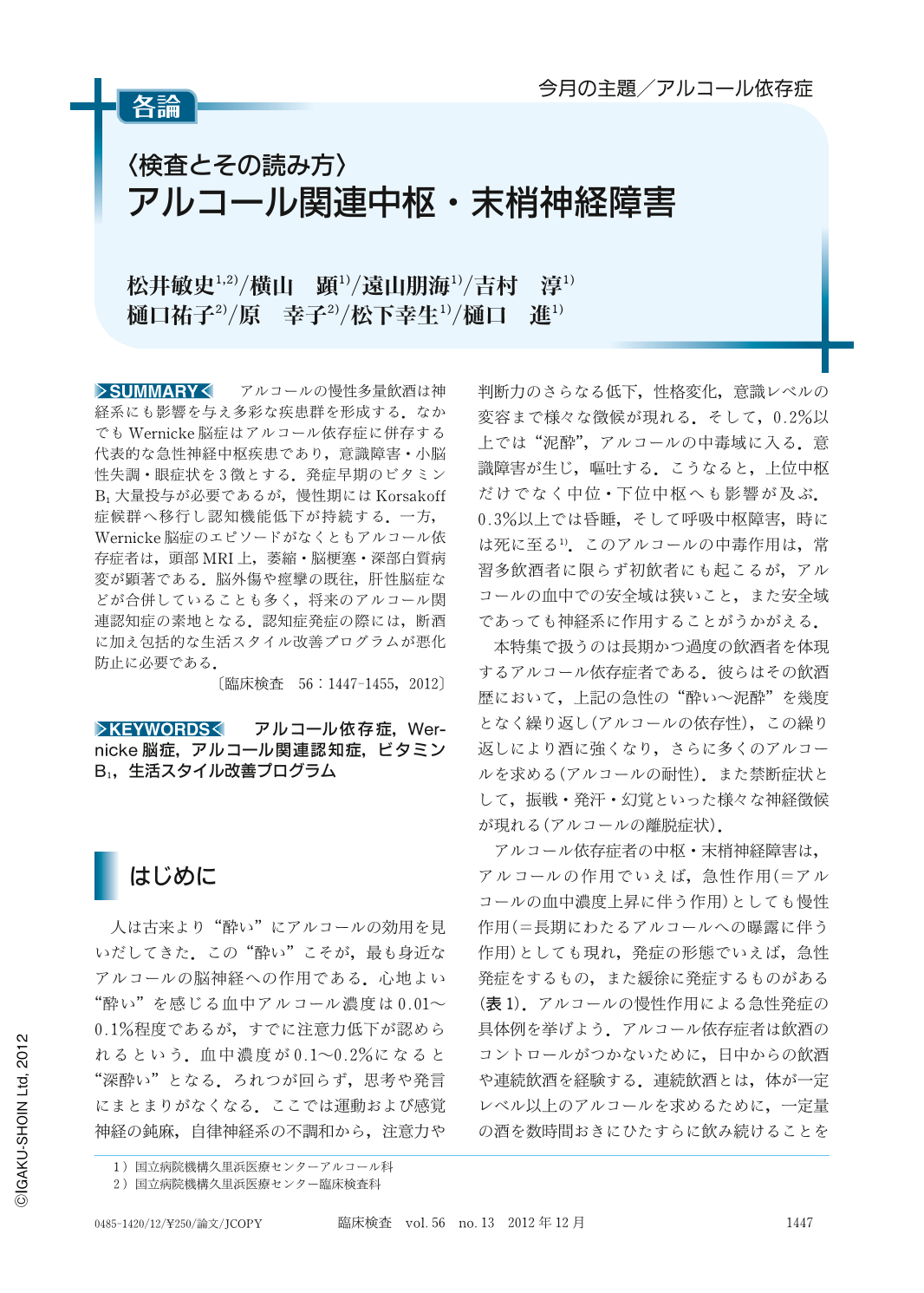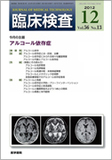Japanese
English
- 有料閲覧
- Abstract 文献概要
- 1ページ目 Look Inside
- 参考文献 Reference
- サイト内被引用 Cited by
アルコールの慢性多量飲酒は神経系にも影響を与え多彩な疾患群を形成する.なかでもWernicke脳症はアルコール依存症に併存する代表的な急性神経中枢疾患であり,意識障害・小脳性失調・眼症状を3徴とする.発症早期のビタミンB1大量投与が必要であるが,慢性期にはKorsakoff症候群へ移行し認知機能低下が持続する.一方,Wernicke脳症のエピソードがなくともアルコール依存症者は,頭部MRI上,萎縮・脳梗塞・深部白質病変が顕著である.脳外傷や痙攣の既往,肝性脳症などが合併していることも多く,将来のアルコール関連認知症の素地となる.認知症発症の際には,断酒に加え包括的な生活スタイル改善プログラムが悪化防止に必要である.
Excessive alcohol use is associated with a wide variety of central nervous system disorders. Specifically, WE (Wernicke's encephalopathy) is the best known acute neurological disorder caused by vitamin B1 deficiency along with chronic alcoholism. The classic triad includes encephalopathy, gait ataxia and oculomotor dysfunction. High-dose parenteral vitamin B1 is recommended as treatment. The sequela of WE is known as Korsakoff's syndrome, a persistent neuropsychiatric syndrome, which is characterized by amnesia and disorientation. This review also shows ARD (alcohol-related dementia). The ARD is multifactorial and its risk factors include WE, cortical brain atrophy, cerebrovascular disease, hepatic encephalopathy, and past history of brain injury such as brain contusion. A comprehensive approach to lifestyle factors is needed for the management of ARD.

Copyright © 2012, Igaku-Shoin Ltd. All rights reserved.


